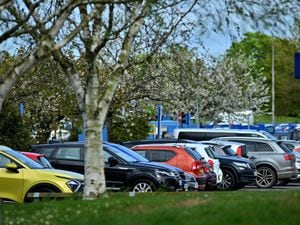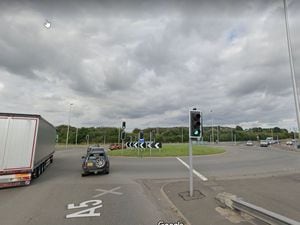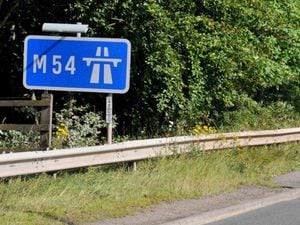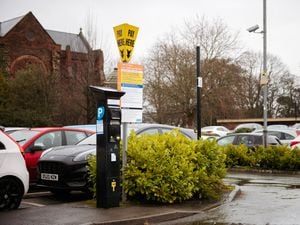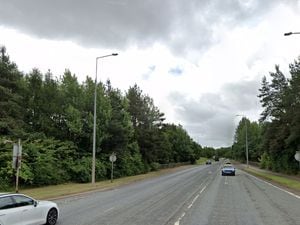How rail revolution will bring faster trains to Shropshire
After decades of major problems, changes are finally afoot for Britain’s railways.
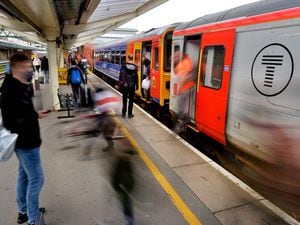
Under sweeping reforms, the Government will deliver rail “the country can be proud of” according to Boris Johnson, bringing an end to the complex and fragmented system passengers are currently forced to deal with.
And today it was revealed how we can look forward to faster trains in the West Midlands as electrification on local lines are extended.
The changes involve new body – Great British Railways – to oversee all services, owning the infrastructure and tasked with collecting revenue, planning the network and setting fares and timetables.
New national flexi season tickets will go on sale later this month, while there will also be a full roll-out of pay as you go, contactless payments and digital ticketing on smartphones.
There will also be a simplified compensation system for easier refunds, while community groups will get the chance to take over the running of branch lines.
To all intents and purposes, the Williams-Shapps Plan for Rail is the first major reform of the system since the privatisation of British Rail in the mid-1990s.
And few will argue that it is not long overdue. The changes of the 1990s were supposed to result in improved services but had the opposite effect. Within a few years more than 100 companies were running operations, and for passengers, the network became complicated, disorganised, expensive and unreliable.
This year’s reforms, while undoubtedly influenced by the pandemic, were prompted by the timetabling debacle of 2018, which saw commuters endure months of cancellations, delays and overcrowding.

The idea behind the new plan is to put passengers first, hardly a novel idea but one which appears to have been missing from the vast majority of recent rail schemes. Here in the Midlands transport bosses have been calling for a rail revolution for some time now, and have today announced the first stage of a scheme which they believe will see people across the region turn to the railways in their droves.
The new study, Rails to Recovery: Building Back Stronger, proposes rail electrification, faster local trains and a new hourly train to London from Shrewsbury. It also suggests that more local stations are opened or reopened, enabling people across the entire region to access services. It sees adapting to the arrival of the controversial HS2 line as key in terms of making sure that local services do not end up getting squeezed out.
According to report authors Midlands Connect, the body tasked with developing transport projects in the region, the proposals will save passengers time and money, while also boosting the economy and helping the environment.
As chief executive Maria Machancoses points out, the report marks the start of a process that is likely to take years rather than months. But in light of the pandemic, she says, reform on the region’s rail network is more vital than ever.
“This is the definition of a win-win project and can help take us from rails to recovery,” she said.
A key element of the plans will see the electrification of the line from Shrewsbury through the Black Country – which it is understood is currently being considered as a pledge in the next Conservative manifesto.
The case for this has been pushed by Daniel Kawczynski, Conservative MP for Shrewsbury & Atcham, who discussed it with officials from the Department for Transport earlier this year.
He said: “At the moment, if you take the direct to train to London, it has to change engines at Birmingham because the line is not electrified.

“I am convinced that this has to change. My constituents frequently raise with me the pressing issue of climate change, and I think that an electrified line would help play a part in tackling this issue. Businesses, commuters and residents in Shrewsbury deserve a first-class rail service and I will work to deliver the rail infrastructure that Shropshire deserves.”
Electrification, along with track upgrades, would see journey times between Shrewsbury and Birmingham cut from 56 minutes to 45 minutes, the report says.
The report also presses the case for a new hourly service to run from Shropshire through the Black Country and Birmingham to London, increasing capacity on the often over-crowded route. And it says journey times could be slashed by using faster trains travelling at speeds of up to 90mph – up to 80 per cent faster than they do now.
The report says: “The scheme has a ‘short-term win’ with improved services and journey times between Shrewsbury, Telford and Birmingham through a line speed improvement and then, in time, we would use the released capacity from HS2 on the West Coast Main Line to deliver direct services to London. All of this would deliver an upgrade for communities up and down the line.”
Time savings to passengers are valued up to £377m, according to the report, with the benefits of fewer cars on our roads and other environmental benefits worth up to £145m.
Shaun Bailey, Tory MP for West Bromwich West, is among those to have backed the plans, which he said would see “massive benefits” for people across the region.
He joined fellow MP Jane Stevenson, senior rail program manager Steve Fisher, Neil Anderson from the Black Country Chamber, CEO of Midlands Connect Maria Machancoses, chair of Black Country LEP Tom Westley, and Councillor Ellis Turrell, at the train station in Wolverhampton to celebrate the Rails to Recovery report. He said: “For residents using Dudley Port and Tipton stations the idea of faster and more frequent trains would be welcome news,” he said.
“I know that there are some ‘quick wins’ here, especially the new hourly trains to London. This can only help businesses in my constituency grow and thrive.
“My constituents want faster, cleaner and greener trains and these plans will help us build back better from Covid-19.”

Meanwhile the case for new stations is also being looked at, with second stations for Wolverhampton and Shrewsbury having been under consideration for a number of years. Wolverhampton South West MP Stuart Anderson, with the backing of West Midlands Mayor Andy Street, has campaigned for a new Tettenhall station, while Wolverhampton North East MP Jane Stevenson is calling for an Oxley and Pendeford station to open.
She said: “In a city the size of Wolverhampton’s, it cannot be right that there is only one train station to serve approximately 265,000 people. So I’m delighted that further work is being carried out by the Government on the feasibility of a new station.
“It would help to reduce congestion on our roads, as many people have no alternative but to travel by car to work.”
Regardless of its proposed name, any station would effectively be located on the line between the Bilbrook and Wolverhampton stations.
While the idea is popular among residents – it would enable thousands more people to access services without having to use other forms of transport to get to a train – adding another stop on the line would see journey times increase. For this reason some transport bosses view the move as a political priority rather than a technical one.
Ms Stevenson has also backed plans for an extra London service from the West Midlands, saying: “It will be vital in the years ahead as the housing department brings hundreds of well-paid jobs to the city and we need better connections to the capital.
“All this shows that working with the Government, in partnership, is delivering real jobs, investment and growth for our city.”
Midlands Connect says there is widespread support for the plans, with 91 per cent of 800 people in the region backing it during research.
Alongside the changes to working patterns, a rail revolution may just be one of a few positive things to come out of the pandemic.

